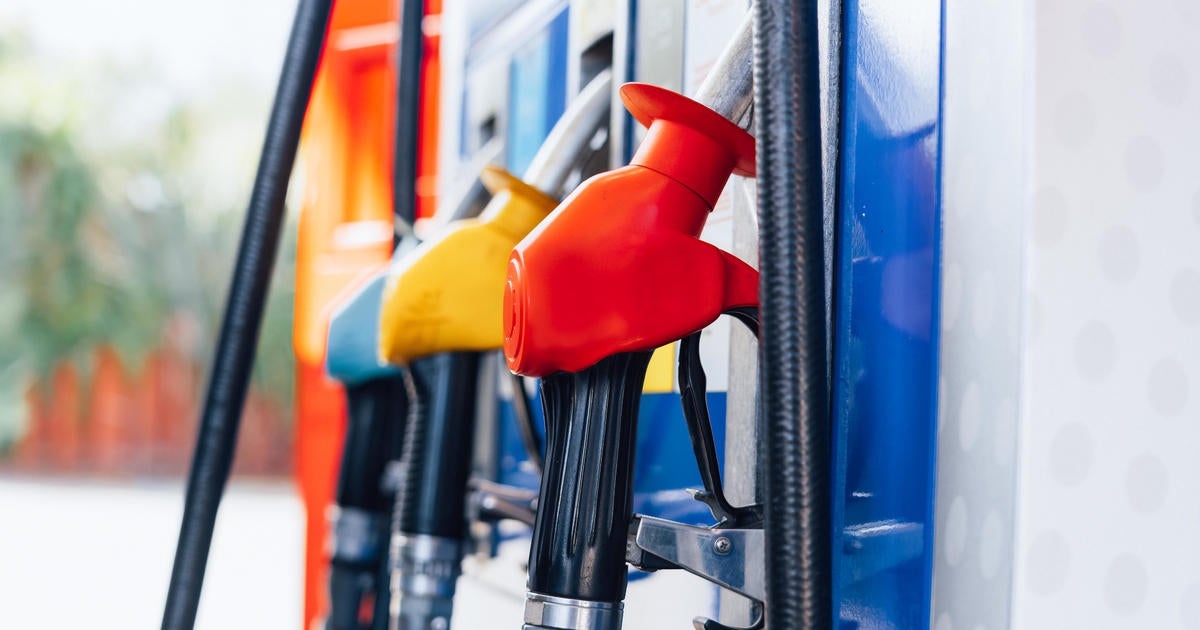White House exploring ways to lower gas prices
As U.S. gasoline prices hover near a 14-year high, the Biden administration is exploring ways to lower fuel costs, from suspending federal gas taxes to further tapping the nation's Strategic Petroleum Reserve.
"This is sort of a five-alarm fire at the White House — they are extremely intensely concerned," Jeff Stein, political reporter at the Washington Post, told CBS News.
"High gas prices are one of the most salient political issues. People see it every day; they feel it in their pocketbooks; it affects a president's approval rating quite dramatically," Stein said.
The national average price of gas fell to $4.24 per gallon this week, down 10 cents from a recent record highs but still about $1.35 higher than a year ago. Meanwhile, the percentage of Americans who cite inflation as the biggest problem facing the U.S. is near a 40-year high, according to a Gallup poll this week.
"The prices that people notice the most are often energy and food. You fill up every week, and you go to the grocery store every week and there are inflationary pressures there still," Paul Ashworth, chief North America economist at Capital Economics, told CBS News.
Among the options the White House is examining for reining in gas prices are reopening the Strategic Petroleum Reserve, suspending the federal gas tax and offering incentives to oil producers to increase output, Stein said.
Treasury Secretary Janet Yellen has said she is open to suspending the federal gas tax on fuel. Democrats in the Senate have introduced legislation that would suspend the 18.5-cents-per-gallon tax for the rest of the year, although critics note that doing so would deplete the Highway Trust Fund, which pays for road maintenance. Several states have already eliminated their own state gas taxes.
Not all lawmakers are on board with giving breaks to energy companies. Senator Bernie Sanders of Vermont is pushing for a tax on excess profits by oil and gas producers, which are raking in profits as energy prices spike. Four of the largest fossil-fuel extractors are posting sales 50% higher than last year, the independent senator noted in a recent tweet calling for a "windfall profits tax."
Typically, the price of gas is closely tied to the global price of crude oil. But while the cost of crude fell this week to below $100 a barrel, "We have not really seen a corresponding decline in gas prices commensurate with the decline in oil prices," Stein told CBS News Streaming.
Oil companies have been slow to drill for more oil, despite a high price of crude that would make doing so very profitable. Instead, many are focused on paying down debt and passing on their profits to investors. In a recent survey, nearly 3 in 10 oil and gas executives told the Dallas Federal Reserve that crude oil prices had no effect on their expansion plans. Asked why they weren't drilling more, oil executives blamed Wall Street, with nearly 60% citing "investor pressure to maintain capital discipline."
As for tapping the Strategic Petroleum Reserve, that, too, has its limits. Such a move would likely ease gas prices for a few weeks, as it did when President Biden last opened the SPR in November. But to lower prices long-term, policymakers will need to either increase the supply of oil or reduce the nation's dependence on it.



